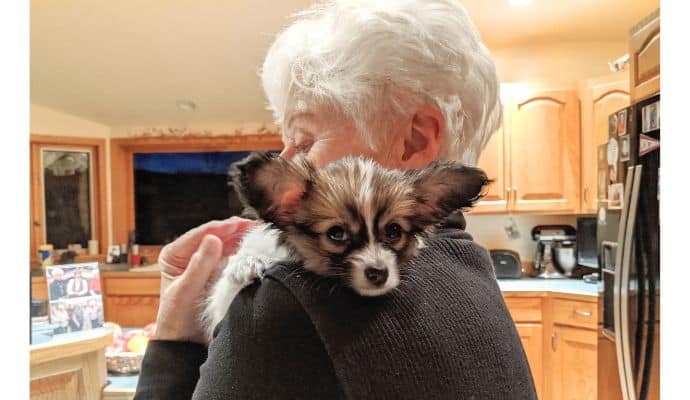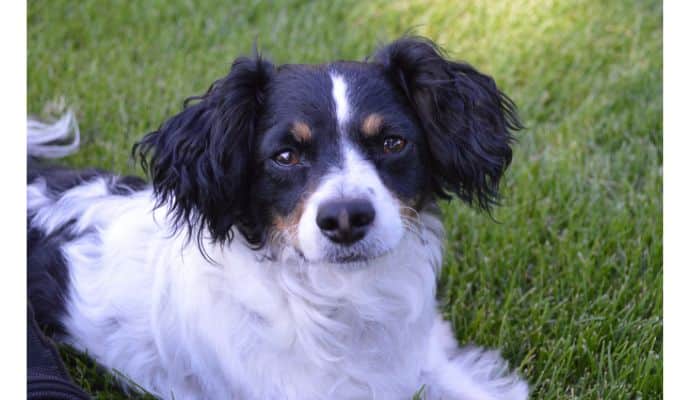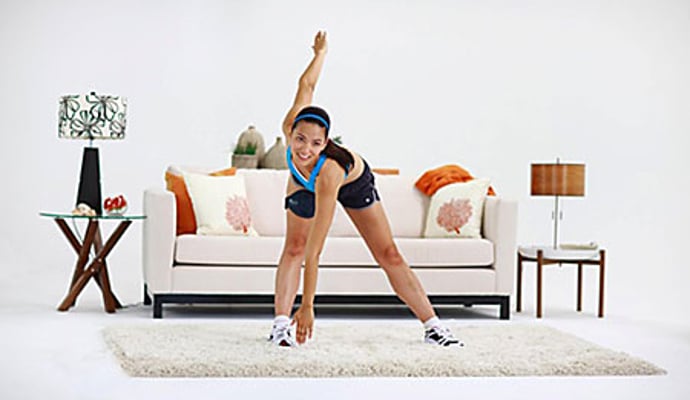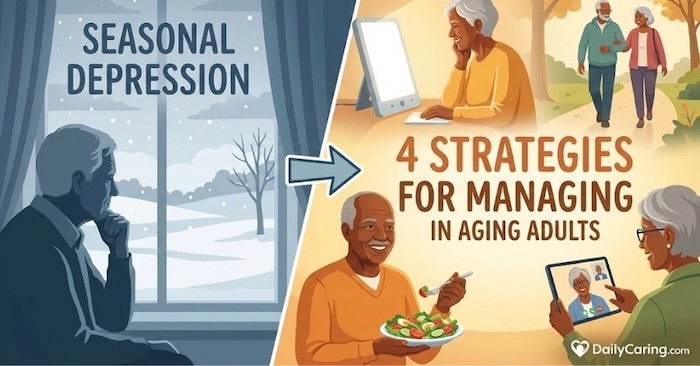
For many seniors, a dog is more than just a pet—it's a companion, a source of comfort, and even a motivator to stay active.
Studies have shown that having a canine companion can reduce loneliness, ease anxiety, and help combat depression. Dogs also offer health benefits, such as lowering blood pressure and encouraging physical activity.
Key Points: Choosing the right dog depends on size, temperament, energy level, and care requirements.
Here are some of the best dog breeds for older adults looking for a furry friend.
Dog Breed Factors to Consider
Before selecting a breed, older adults should consider:
- Energy Level – A dog’s activity needs should match the owner’s ability and lifestyle. Some seniors may prefer a low-energy dog, while others with an active lifestyle may want a high-energy breed that requires lots of walks and playtime.
- Size – Smaller dogs are easier to manage, especially when it comes to picking up dog waste, grooming, and the amount of food they need. Some larger breeds are very gentle and may be a better fit for someone who wants a more intimidating presence and bark.
- Grooming Needs – Dogs with minimal grooming needs are often a better fit.
- Temperament – A calm, affectionate nature vs a high-strung, anxious personality may be preferable.
- Health Considerations – Some breeds are prone to fewer health issues, leading to lower vet costs and care needs.
- Allergies – Some seniors may have sensitivities to pet dander, so that hypoallergenic breeds may be a better option.
VIDEO: Best Small Dog Breeds for Aging Adults
Potential Challenges and Responsibilities of Owning a Dog as a Senior
While owning a dog has many benefits, older adults should also consider the potential challenges and responsibilities involved.
- Daily Care and Exercise – Even low-energy dogs require daily walks, feeding, and companionship. Seniors with limited mobility should consider dogs with minimal exercise needs.
- Veterinary Costs – Regular check-ups, vaccinations, and potential health issues can be costly. Pet insurance may help, but budgeting for unexpected expenses is important.
- Grooming Needs—Some breeds require frequent grooming, which can be challenging for seniors with limited dexterity. Low-maintenance dogs may be a better fit.
- Training and Behavior – Puppies and some adult dogs may require obedience training. Adopting an older, well-trained dog from shelters can help avoid this challenge.
- Longevity and Planning – Many dog breeds live 10-15 years or longer. People should consider what would happen to their pet if they can no longer care for it. Have a plan in place, such as identifying a family member or friend who can take over the care if needed.
- Travel and Lifestyle Adjustments – Owning a pet can limit travel flexibility. Seniors who frequently travel should consider whether they can accommodate a dog’s needs.
Alternatives for Seniors Who Cannot Have a Dog
Not everyone can own a dog due to housing restrictions, physical limitations, or personal circumstances. However, there are still ways to experience the companionship of a dog without full-time ownership:
- Volunteering at a Shelter—Many animal shelters and rescue organizations welcome volunteers to help walk and socialize dogs.
- Pet Therapy Programs – Some senior living communities and hospitals offer therapy dog visits, allowing seniors to interact with dogs in a structured environment.
- Dog-Sitting for Friends or Family – Caring for a dog on an occasional basis can provide companionship without long-term responsibility.
- Fostering a Dog – Temporary fostering for rescue organizations can be a way to have a pet for a limited time.
- Robotic or Stuffed Companion Pets—Interactive robotic Pets provide a lifelike experience for seniors who want companionship without the physical demands of a live pet.
- Adopting a Low-Maintenance Pet – If a dog is not feasible, seniors might consider smaller, lower-maintenance pets such as cats, birds, or fish.
Best Dog Breeds for Seniors

1. Cavalier King Charles Spaniel
- Small (13-18 lbs)
- Gentle, affectionate, and friendly
- One of the friendliest dog breeds
- Moderate exercise needs, happy with short walks
- Provides unconditional love, making it ideal for those experiencing loneliness
- Requires regular grooming
2. Pug
- Small (14-18 lbs)
- Adaptable and affectionate with a playful side
- One of the best small dogs for seniors
- Minimal grooming needs
- Can be prone to breathing issues, so moderate exercise is best
- Their clownish personality can lift moods and help with mental health
3. French Bulldog
- Small to medium (16-28 lbs)
- Loyal, affectionate, and low-maintenance
- An excellent companion dog for seniors
- A short coat requires minimal grooming
- Enjoys short walks and indoor play
- Compact build and short legs make them easy to handle
4. Shih Tzu
- Small (9-16 lbs)
- Calm, affectionate, and great for apartment living
- One of the best lap dogs for seniors
- Requires regular brushing to maintain the coat
- Low exercise needs
- Excellent for providing unconditional love to seniors with depression
5. Bichon Frise
- Small (12-18 lbs)
- Cheerful, affectionate, and hypoallergenic
- One of the dogs for seniors that don’t shed, great for those with allergies
- Regular grooming needed, but minimal shedding
- Moderate energy level, enjoys short walks and playtime
6. Miniature Schnauzer
- Small to medium (11-20 lbs)
- Intelligent, affectionate, and trainable
- One of the best medium-sized dogs for seniors
- Low shedding, but needs regular grooming
- Moderate activity level, enjoys short to medium walks
- Loyal nature makes them a great canine companion
- Schnauzers are known for being loyal, but may not be the most friendly (around strangers) breed
7. Maltese
- Small (4-7 lbs)
- Affectionate lap dog, great for companionship
- One of the best lap dogs for seniors
- Requires frequent brushing
- Low exercise needs
- Offers comfort and unconditional love to those experiencing anxiety
8. Cocker Spaniel
- Medium (20-30 lbs)
- Gentle, affectionate, and good with people
- One of the best medium-sized dogs for seniors
- Requires regular grooming
- Enjoys moderate activity but doesn’t require extensive exercise
- Great for improving mental health through companionship
9. Papillon (Very controversial according to the author!)
- Small (5-10 lbs)- perhaps too small? We worry about the dog being stepped on and easily injured if they are underfoot.
- Intelligent, loyal, curious, and hardy
- One of the best Velcro dogs for seniors
- Requires regular grooming
- Active dogs that can walk for miles, but are also happy with short walks
- Great for companionship, but can be “barky”
- May require additional veterinary care – the author's Papillon has had to undergo multiple tooth extractions. We have heard from other owners that this is an issue with the breed.
Senior-Friendly Mixed Breeds
Rescue organizations and shelters often have mixed-breed dogs with ideal temperaments for seniors. Older dogs can be an excellent choice as they are usually already trained, calmer, and require less exercise.
Many of these dogs are perfect dogs for seniors who want a loving companion without the challenges of raising a puppy.
Can Dogs Live in Assisted Living?
Many assisted living communities allow residents to have small or low-maintenance pets, but policies vary by facility. If you are considering moving into an assisted living environment, be sure to check pet policies in advance.
Some assisted living communities have companion dogs that visit regularly for residents as part of their therapy programs to improve residents' mental health and reduce loneliness.
Some staff may also bring their dogs to work in senior care communities.
Conclusion
The best dog for a senior depends on their lifestyle, mobility, and personal preferences. Small to medium-sized, affectionate, and low-maintenance breeds are the best fit. Seniors considering a pet should also consider adopting an older dog, which may be a perfect, low-energy companion.
Whether looking for good dogs for seniors that don’t shed, a playful companion, or a devoted lap dog, there’s a breed that fits every need.
A canine companion provides unconditional love and can significantly improve a senior’s quality of life, helping to ease anxiety, loneliness, and depression.
Frequently Asked Questions
What is the easiest dog for seniors?
The easiest dogs for seniors are those that require minimal grooming, have a friendly temperament, and don’t require excessive exercise. Breeds like the French Bulldog, Pug, and Maltese are excellent choices due to their adaptability and affectionate nature.
Which is the most low-maintenance dog?
Dogs with short coats and lower energy levels tend to be the most low-maintenance. The French Bulldog, Bichon Frise, and Pug require little grooming and only moderate exercise, making them excellent options for seniors.
Can you have dogs in assisted living?
Some assisted living facilities allow residents to have pets, but policies vary. Many communities permit small, low-energy breeds that don’t require extensive care. Some facilities even have pet therapy programs that allow residents to interact with canine companions without the responsibility of full-time ownership.
About the Author

Amie Clark is a senior care expert with over 25 years of experience in aging services, caregiving, and senior housing. She combines her professional expertise and personal caregiving insight to help families navigate aging, long-term care, and end-of-life decisions with clarity and compassion.














Very informative.
Thank you Carolyn!